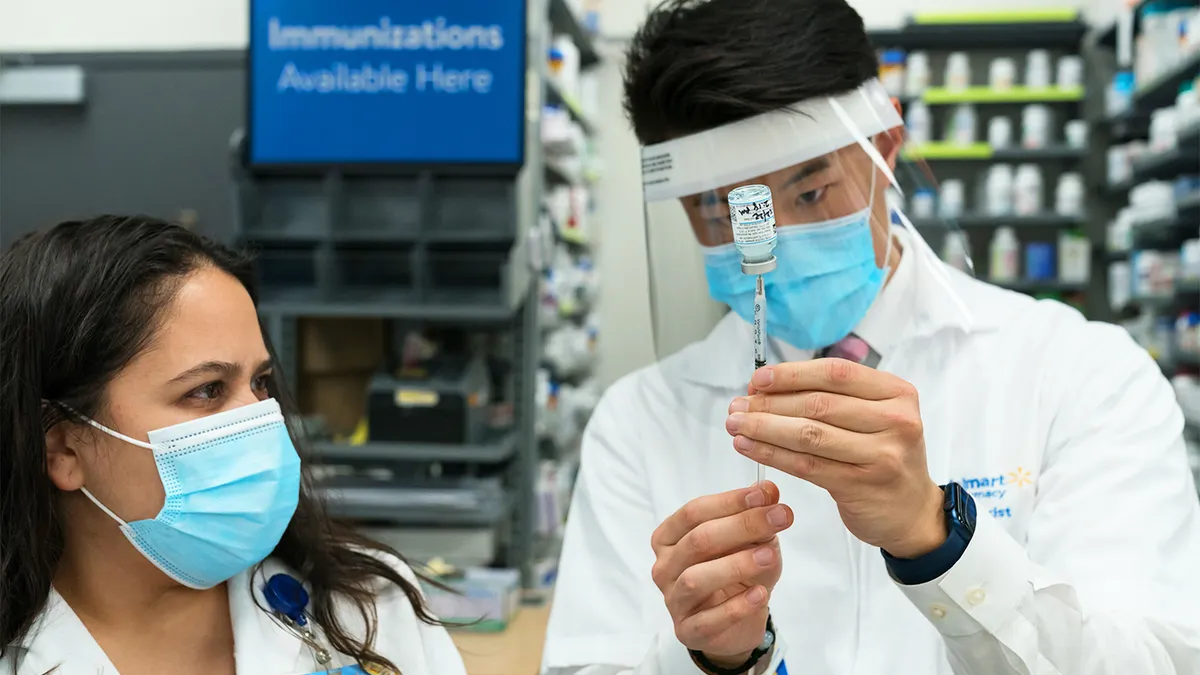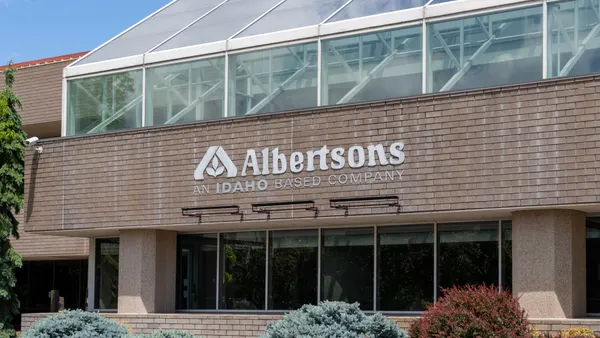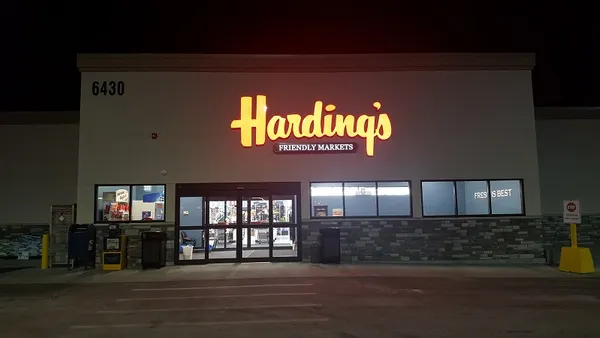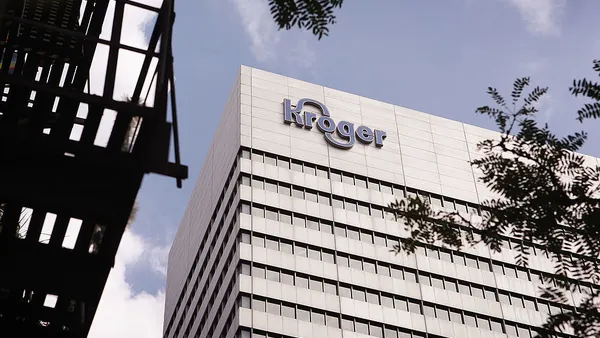Dive Brief:
- Grocery chains including Albertsons, H-E-B, Hy-Vee and Walmart have started administering COVID-19 vaccines to high-priority recipients as the food-retailing industry gears up for a large-scale rollout of inoculations against the disease during the coming months, according to announcements from the companies.
- The retailers are initially giving vaccines to people in Phase 1a of the Centers for Disease Control and Prevention’s distribution plan, which limits the shots to healthcare workers and residents of long-term care facilities.
- Grocery workers are among the “frontline essential workers” included in the next phase of the government inoculation plan, but it remains unclear when vaccinations will be made available to that segment of the population.
Dive Insight:
Retailers have been taking various approaches to distributing the limited doses they are receiving during the start of the first phase of the COVID-19 vaccine rollout despite adhering to the same set of government-issued guidelines spelling out how the shots should be allocated.
Hy-Vee opted to provide the first doses it secured to staff and residents of a long-term care facility in Fairmont, Minnesota, on Dec. 29. Hy-Vee staff are set to return to the facility to administer the required second dose of the vaccine 28 days later.
H-E-B, meanwhile, gave the first doses it received to community healthcare providers and indicated that it would offer unused doses to people in Phase 1b rather than let them spoil. The company uses an online tool to schedule vaccinations that is currently inactive until it receives more doses from the state of Texas.
H-E-B said each vaccine vial it receives provides 10 doses and noted on its website that all of the doses in a batch must be used within a few hours after the vial is opened. H-E-B did not say if it would offer to inoculate grocery workers in cases when it has excess doses.
“Per the government guidelines, providers can give any remaining doses to people who fall within the next priority group. Every attempt is being made to prevent this, but no doses should be wasted,” H-E-B said.
Albertsons kicked off its vaccine-distribution effort on Dec. 18 by administering shots at a clinic in Alaska staffed by Carrs Safeway pharmacists, the grocer said. Going forward, the retailer plans to distribute vaccines at in-store pharmacies as well as sites elsewhere in communities it serves.
Walmart is taking a different approach. The retailer said it is providing the first doses of the vaccine it receives to its pharmacists because they will be responsible for administering shots to other people. The first Walmart worker to receive a shot was a pharmacy clinical service manager in New Mexico.
Other food retailers, including Kroger, Albertsons, Publix and Ahold Delhaize, have also signed up with the federal government to administer COVID-19 vaccines. Kroger said in December that it had begun administering inoculations in Alaska.
The United Food and Commercial Workers Union (UFCW), which represents about 1.3 million food and retail workers, is pressing grocers to ensure that people who work in grocery stores are able to access COVID-19 shots as the nation moved into the next phase of vaccine distribution.
“As the largest union for America’s grocery workers, UFCW is calling on grocery CEOs to immediately work with governors to guarantee access to the vaccine for their frontline employees. Protecting our country’s frontline food workers is essential to keeping our communities safe and stopping future outbreaks in these high-exposure workplaces," UFCW International President Marc Perrone said in a Jan. 1 statement.














